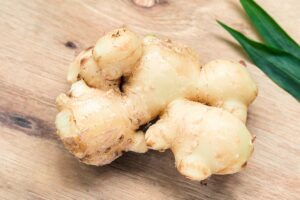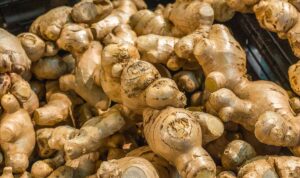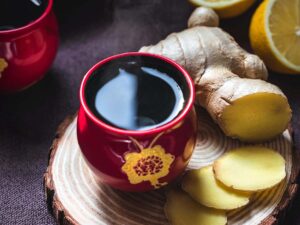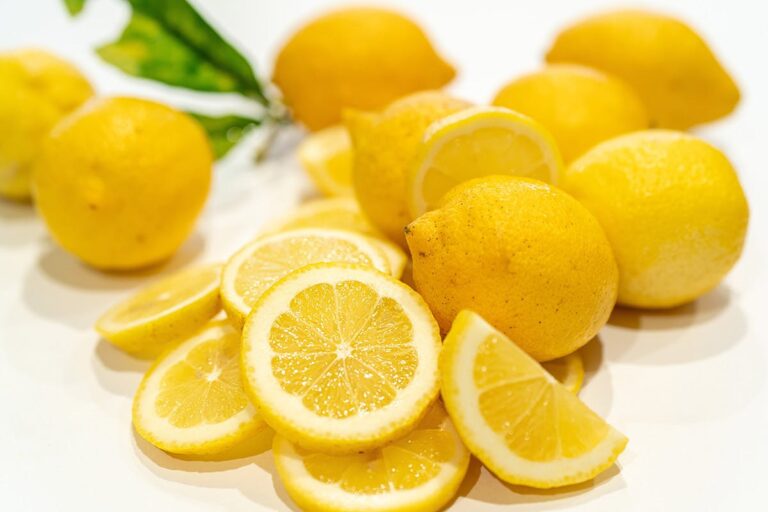Ginger: A Powerful Rhizome
Ginger is not exactly a root, but it kind of looks like one. Ginger, known scientifically as Zingiber officinale, is a rhizome commonly used in foods and beverages for their characteristic pungency and flavor. It is used widely in Chinese, Ayurvedic, Unani medicines and home remedies for many ailments including pain, inflammation, and gastrointestinal disorders.
Healing Properties of Ginger

Many of the beneficial properties of ginger have been verified in recent years. From numerous gastrointestinal benefits to anti-inflammatory effects, ginger provides potent antioxidants for general wellbeing and health. Gingerol is the main bioactive compound in ginger. It’s responsible for much of ginger’s medicinal properties. Ginger may helpful in supporting health in a variety of ways, including:
Nausea. Mom was right when she gave you ginger ale when you were a kid. Ginger really does help with stomach upset. It can even help with morning sickness, but there are some studies showing that women with a history of miscarriage of pregnancy complication talk to their doctor about potential complications.
Obesity. A 2019 study concluded that ginger had a very positive effect on obesity and weight loss, but additional study is needed.
Osteoarthritis. In one study, people who used ginger to treat their OA saw significant reductions in pain and disability, particularly with knee pain.
Blood sugar. Ginger has been shown to lower blood sugar levels and improve various heart disease risk factors in people with type 2 diabetes with repeated use.
Protective against cancer. This property is attributed to gingerol, which is found in large amounts in raw ginger. A compound called [6]-gingerol is viewed as especially powerful. In one study of people at normal risk for colorectal cancer, a small intake of 2 grams of ginger extract per day significantly reduced pro-inflammatory signaling molecules in the colon.
Brain function. Oxidative stress and chronic inflammation are some of the key drivers of Alzheimer’s disease and age-related cognitive decline. Some animal studies suggest that the compounds in ginger can inhibit inflammation that affects the brain. As well, a 2012 study of middle-age women found that daily doses of ginger extract improved memory and reaction time.
Infection. According to a 2008 study, ginger is very effective against the oral bacteria linked to gingivitis and periodontitis. Studies also have shown that ginger can be effective against the respiratory syncytial virus (RSV), a common cause of respiratory infections.
Detoxification. The spiciness of ginger can also help with detoxification. Often combined with lemons, ginger can help with eliminations even through your sweat. As well, ginger can assist with assimilation if you’ve consumed too many fats. It can be taken when experiencing gall bladder or liver stress to assist with proper elimination and assimilation.
How to Buy Ginger

As with many herbs, spices, fruits and vegetables, the key benefits of ginger are most potent the more fresh the ginger is. Choose a rhizome that looks shiny with thin, taut skin, never thick and fibrous. Does it have that distinctive pungent and spicy scent?
Avoid wrinkled, soft or ginger that looks like it might be dehydrated soon.
Uses for Ginger
Ginger can be used in cooking, and is a prominent feature of many Asian dishes where the ginger rhizome is found natively. Here are some of our favorite uses for ginger:
Ginger Tea

More of an infusion than a tea, ginger tea is an excellent aid for digestion, nausea, or even to cleanse the palate. Slice ginger thinly, place in boiled water and steep for 2 minutes. Remove the ginger (if desired, but you can still steep it while sipping your tea) and your digestion will strengthen.
Cooking with Ginger
When cooking with ginger, peel your rhizome and slice thinly. It’s great to add at the beginning of preparation, as you would normally do with onions and garlic. Ginger has properties that infuse oils quite well. Cooking it early with oil prior to adding other ingredients ensures that your oil becomes infused with ginger’s properties and flavors.
Ginger in Juice
Juicing vegetables such as carrots is a wonderful way to add more nutrients to your diet with less bulk. Carrots are wonderfully complemented by ginger as a flavor, and carrots can make consuming ginger’s powerful spiciness much easier. You might want to experiment with how
Growing Ginger
If you live in a warm and humid area of the United States, you can also grow ginger. Look for ginger rhizome in your grocery story that looked healthy and has at least a few nodes or “eyes” on it. Plant it in a wide planter with well draining soil. The plant itself is quite pretty, and your one ginger rhizome root will grow to provide even more. When the weather begins to cool, you can dig up the root, wash it gently to harvest it, and even store in a cool dry area to replant next growing season.
This article was originally published on the Shasta Sage Wisdom newsletter. Not receiving it yet? Subscribe today by completing the form below.





